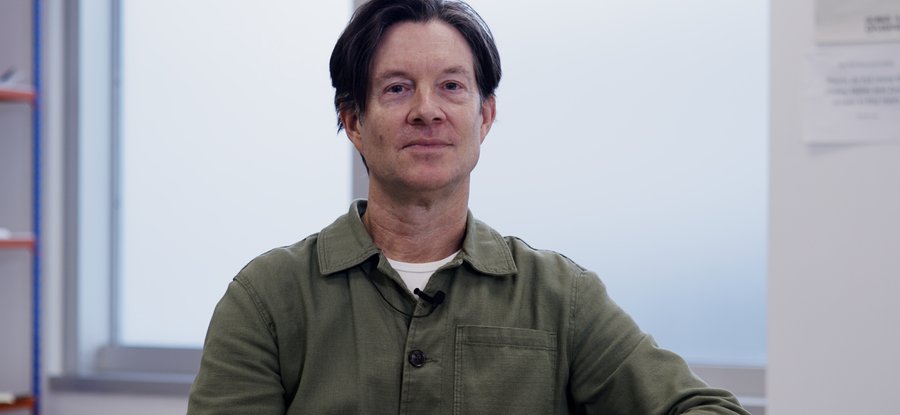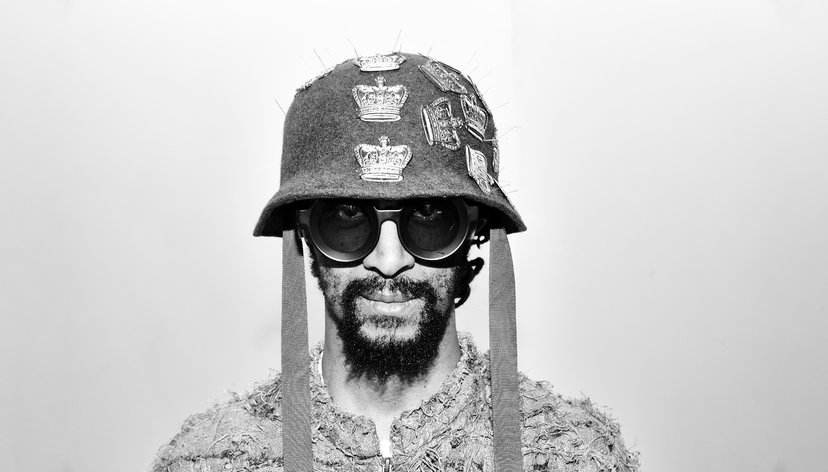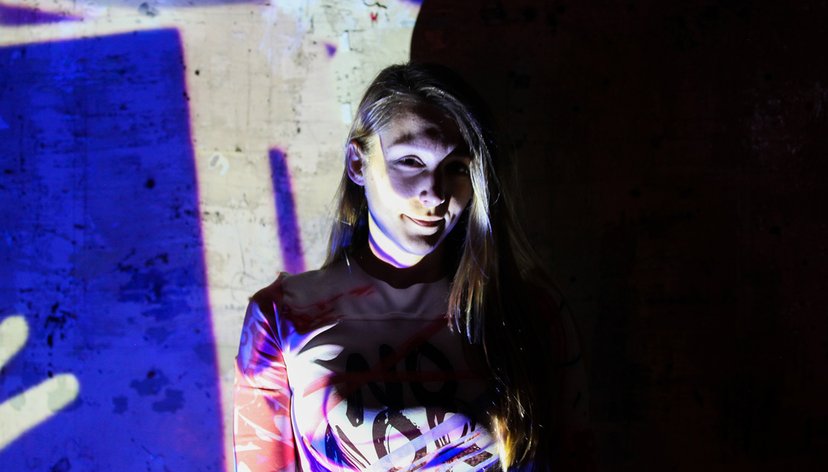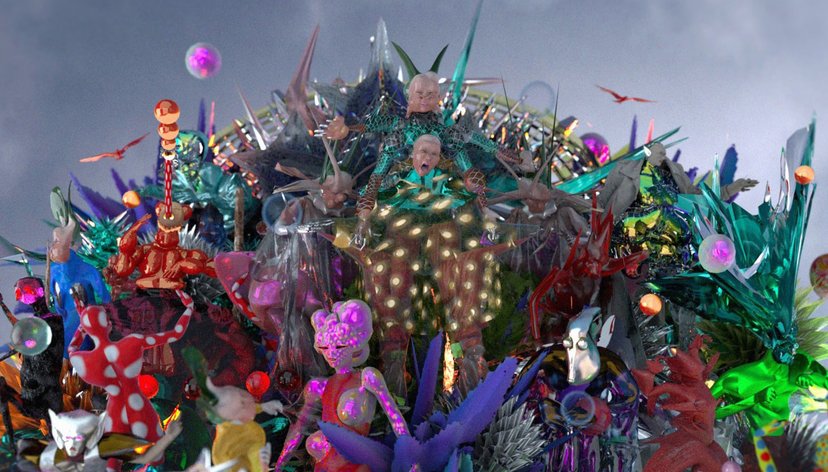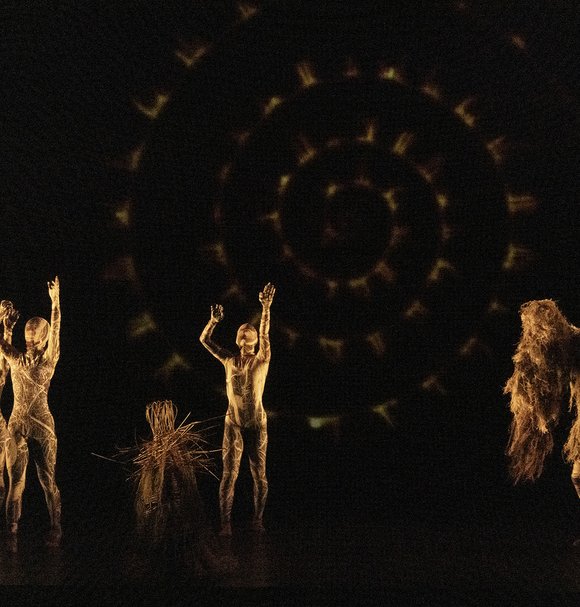
Key details
Date
- 13 March 2024
Read time
- 5 minutes
Watch Royal College of Art (RCA) Fashion MA Senior Tutor Philip Delamore discuss his costume design for the Company Wayne McGregor production UniVerse: A Dark Crystal Odyssey.
At the RCA, Philip Delamore is Systems Tutor on the Fashion MA programme. In this role he encourages students to consider fashion in the larger context of the world. “It’s about looking at fashion rather than just the end product, stepping back and thinking about it as part of a system and how all of those other parts of the system need to work together”, Philip explained.
“We’re stepping back from the product and thinking about the entire ecosystem of what that means in the world and the challenges of that.”
Senior Tutor, Fashion MA
“We’re not just thinking about a dress, a model, a catwalk, we’re thinking about all that comes before and after. We’re stepping back from the product and thinking about the entire ecosystem of what that means in the world and the challenges of that.”

Philip is a practising designer, researcher and futurist looking at posthuman identity and the future internet. He has been working at the intersection of fashion and technology for around 25 years, both in and out of academia. He started his career as a fashion designer with a label in the 1990s, and more recently has worked across disciplines, from fashion to games, performance and publishing, as well as consultancy with large brands and designers on the role of innovation in design and technology.
“I’ve always been a sort of outlier in the sense of the fashion industry,” Philip added. “I’ve never really been interested in the luxury brand aspect of fashion, rather more what it means to us as a cultural device, a cultural artefact.”
Costume design for UniVerse: A Dark Crystal Odyssey

UniVerse A Dark Crystal Odyssey by Company Wayne McGregor, costume design Philip Delamore
One of Philip’s recent projects was designing costumes for the Company Wayne McGregor production UniVerse: A Dark Crystal Odyssey – a contemporary dance production inspired by the 1982 Jim Henson film, The Dark Crystal. The production uses immersive technology, choreography and spoken word to comment on the climate crisis and explore the inseparability of humanity and nature. It is a co-production between Studio Wayne McGregor and The Royal Ballet in association with The Jim Henson Company, which premiered at the Royal Opera House, London, in May 2023, and toured internationally to Portugal, Italy and Sadler’s Wells, London, in February and March 2024. A Telegraph review of the production described it as “a tremendously inventive shriek of horror at the state of the planet... a retina-dazzling, thought-provoking success.”
In the past Philip has worked with dancers and choreographers to present his fashion collections, however, designing costumes for this context posed particular challenges. As he explained: “you’re talking about a small company of people in close physical contact, moving, rolling. So you have to take this into account when you’re thinking about how the dynamic movement of a costume will look in motion. There are a lot of constraints, but it’s about how you find a way of inhabiting that new space and that new world. That’s really exciting.”

UniVerse A Dark Crystal Odyssey by Company Wayne McGregor, costume design Philip Delamore
“We used a lot of waste stream materials, we worked with a lot of natural materials, and we also worked with RCA students and alumni working at the forefront of these kinds of materials: mycelium leather, pineapple leather, bioplastic materials.”
Senior Tutor, Fashion MA
Working with face-and-body artist Alex Box, Philip took the themes and ideas of the original film as a starting point, in particular human’s extractive relationship with nature. They considered this through textural qualities – drawing on patterns from mushrooms, crab shells, roots and other natural forms – as well as evidence of the impact of man on nature, such as plastic agglomerates washed up on beaches.
There was an emphasis on working with sustainable materials, as Philip outlined: “We didn’t want to just think about those ideas, but actually really incorporate them into the material of what we were making. We used a lot of waste stream materials, we worked with a lot of natural materials, and we also worked with RCA students and alumni working at the forefront of these kinds of materials: mycelium leather, pineapple leather, bioplastic materials.”
They also collaborated with RCA Fashion alumni Shanti Bell – who created body sculptures for the Skeksis character – and Sam Chester, a craftsperson working at the intersection of both digital and physical materials.

Skeksis costume design by Shanti Bell for UniVerse A Dark Crystal Odyssey by Company Wayne McGregor
Technology and the posthuman
One of Philip’s areas of research is the intersection of posthumanism with new technologies. Recently he worked on the RCA Beyond Human research project which looked at how to engage people in conversations around the digitalisation of our world and understanding identity in the physical-digital environment.
He worked on a research project with Epic Games exploring identity in the metaverse. This involved a cohort of students from across the School of Design experimenting with building new identities using Epic’s Metahuman Creator software. MA Fashion staff and alumni then worked with sixth form pupils to engage younger people with these same ideas and challenges.
“As designers, artists and creative people it's our job to understand and tell the stories around those new technologies which allow people to be informed and make critical decisions and judgments about them.”
Senior Tutor, Fashion MA

Beyond Human workshop with sixth form pupils from Oasis Isle of Sheppey
Reflecting on this research, he commented: “I’m interested in how we retain our sense of humanity within these different speeds of engagement with these different types of technologies. I’m also interested in new behaviours and behavioural change and what the governance, responsibility and ethics of the adoption of some of these technologies are.”
While Philip describes himself as once being a technology evangelist, he is now more wary of technologies that have been rapidly adopted and accepted. “Those technological lenses that allow us to see in different ways are really exciting and valuable. But at the same time, there is a danger that we’re all being funnelled into a limited space imaginatively and creatively. As designers, artists and creative people it's our job to understand and tell the stories around those new technologies which allow people to be informed and make critical decisions and judgments about them.”
Expanding Fashion at the RCA

Philip reflected on what makes Fashion at the RCA stand out: “The RCA Fashion MA programme is unique because it brings together so many diverse talents. We have such great tutors who are practitioners themselves, and academics who have been working in the field for a long time. We’re also able to bring incredible people into the RCA from industry, but also philosophers or psychologists, who can talk to us about what reality means, or about how we think.”
Another strength of the RCA is the variety of specialist art and design programmes that are taught in close proximity. “We have this great diversity of disciplines within the RCA that we’re able to draw on” Philip asserted. “I teach on the AcrossRCA project, which brings students from all the different disciplines within the RCA together. So you might have a service designer, a fashion designer, an innovation design engineer, working with an architect, on problems around the big challenges we face.”

“Many of them are creating the change ahead of the industry; it’s really about the industry catching up to what our graduates are doing”
Senior Tutor, Fashion MA
This dynamic environment enables RCA graduates to lead the way with new ideas and new ways of working. Philip concluded: “We’re thinking about fashion beyond the constraints of the fashion industry as it exists. It needs to change and we’ve already seen how our graduates are leading that change, either through their working methods, materials or processes. Many of them are creating the change ahead of the industry; it’s really about the industry catching up to what our graduates are doing.”
